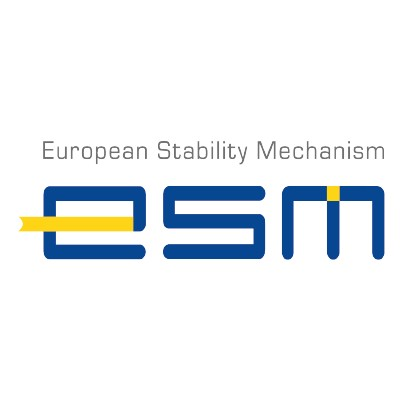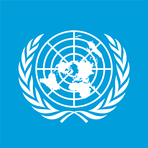Tensions Rise: The Middle East on the Brink of Chaos
June 18, 2025, 10:53 am

Location: Belgium, Brussels-Capital, Brussels
Employees: 1001-5000
Founded date: 1958
Total raised: $310.85K

Location: United States, New York
Employees: 10001+
Founded date: 2002
Total raised: $500M
The Middle East is a cauldron, bubbling with tension. Recent events have turned the heat up, threatening to boil over. The clash between Israel and Iran has escalated, drawing in global powers and igniting fears of a wider conflict.
European Commission President Ursula von der Leyen recently spoke with Israeli Prime Minister Benjamin Netanyahu. She emphasized the importance of diplomacy regarding Iran. Yet, her words lacked the urgency for an immediate ceasefire. It’s a delicate dance, balancing the need for peace with the reality of ongoing hostilities.
Netanyahu echoed her sentiments. He firmly believes that Iran must not possess nuclear weapons. This is a consensus among many world leaders. The stakes are high. Iran's military capabilities are a growing concern. Drones and missiles, designed in Iran, are wreaking havoc in Ukraine and Israel alike. The threats are intertwined, and the need for a united front is clear.
Iran, however, is not backing down. In response to international scrutiny, it announced plans to ramp up uranium enrichment. This move raises alarms. While Iran claims it won’t reach levels necessary for nuclear weapons, the specter of a nuclear-armed Iran looms large. Israel, known to possess nuclear weapons, remains on high alert. The silence surrounding its arsenal speaks volumes.
The situation is further complicated by the G7 nations. They recently issued a statement supporting Israel and labeling Iran as a source of instability. The G7 leaders called for de-escalation in the region. Their words are a call to action, but will they be heeded? The air war between Iran and Israel has already begun. Israel launched airstrikes against Iran, escalating tensions that were already fraught due to the ongoing conflict in Gaza.
The backdrop of this conflict is a region that has been on edge since October 2023. Israel's military actions in Gaza have drawn widespread condemnation. The humanitarian crisis there is dire. Civilians are caught in the crossfire, and the world watches with bated breath. The G7's call for a ceasefire in Gaza is a step towards addressing this crisis. Yet, it feels like a band-aid on a gaping wound.
President Donald Trump, attending the G7 summit in Canada, is feeling the pressure. He plans to return to Washington early due to the escalating situation. His administration has maintained a distance from Israel's attacks on Iran, yet Trump has praised them. This duality raises questions about the U.S. role in the conflict. Are they merely observers, or are they complicit in the chaos?
The U.S. has warned Iran against attacking American interests in the region. This warning is a reminder of the fragile balance of power. The U.S. is not just a spectator; it is a player in this high-stakes game. Secretary of State Marco Rubio has been in talks with European counterparts, discussing the implications of the Israel-Iran war. The conversations are crucial, but they also highlight the complexity of international diplomacy.
As the conflict escalates, the world holds its breath. An Israeli strike recently hit Iran's state broadcaster, a clear message of defiance. Trump’s social media post urging evacuation from Tehran adds to the tension. The stakes are rising, and the potential for miscalculation is high.
The situation is precarious. Each move is calculated, yet unpredictable. The potential for a broader conflict looms large. The G7's statement is a call for stability, but the reality on the ground is chaotic. The air war is just one aspect of a multifaceted crisis.
Iran's leadership is feeling the pressure. The internal dynamics are shifting. Khamenei's inner circle is reportedly feeling the strain of the conflict. The Iranian leadership is under scrutiny, both domestically and internationally. The stakes are high, and the consequences of failure could be catastrophic.
In this game of chess, every piece matters. The U.S., Israel, and Iran are all playing for keeps. The potential for a nuclear deal with Iran still exists, but it feels like a distant dream. The road to peace is fraught with obstacles. Each side has its own agenda, and finding common ground is a daunting task.
The world watches as the situation unfolds. The Middle East is a powder keg, and the fuse is lit. The need for diplomacy is urgent, yet the reality of the conflict is harsh. The stakes are high, and the consequences of inaction could be dire.
In conclusion, the Middle East stands at a crossroads. The conflict between Israel and Iran is a flashpoint, threatening to engulf the region. The calls for diplomacy are crucial, but they must be backed by action. The world cannot afford to stand by as tensions rise. The time for decisive action is now. The future of the region hangs in the balance, and the cost of failure is too great to ignore.
European Commission President Ursula von der Leyen recently spoke with Israeli Prime Minister Benjamin Netanyahu. She emphasized the importance of diplomacy regarding Iran. Yet, her words lacked the urgency for an immediate ceasefire. It’s a delicate dance, balancing the need for peace with the reality of ongoing hostilities.
Netanyahu echoed her sentiments. He firmly believes that Iran must not possess nuclear weapons. This is a consensus among many world leaders. The stakes are high. Iran's military capabilities are a growing concern. Drones and missiles, designed in Iran, are wreaking havoc in Ukraine and Israel alike. The threats are intertwined, and the need for a united front is clear.
Iran, however, is not backing down. In response to international scrutiny, it announced plans to ramp up uranium enrichment. This move raises alarms. While Iran claims it won’t reach levels necessary for nuclear weapons, the specter of a nuclear-armed Iran looms large. Israel, known to possess nuclear weapons, remains on high alert. The silence surrounding its arsenal speaks volumes.
The situation is further complicated by the G7 nations. They recently issued a statement supporting Israel and labeling Iran as a source of instability. The G7 leaders called for de-escalation in the region. Their words are a call to action, but will they be heeded? The air war between Iran and Israel has already begun. Israel launched airstrikes against Iran, escalating tensions that were already fraught due to the ongoing conflict in Gaza.
The backdrop of this conflict is a region that has been on edge since October 2023. Israel's military actions in Gaza have drawn widespread condemnation. The humanitarian crisis there is dire. Civilians are caught in the crossfire, and the world watches with bated breath. The G7's call for a ceasefire in Gaza is a step towards addressing this crisis. Yet, it feels like a band-aid on a gaping wound.
President Donald Trump, attending the G7 summit in Canada, is feeling the pressure. He plans to return to Washington early due to the escalating situation. His administration has maintained a distance from Israel's attacks on Iran, yet Trump has praised them. This duality raises questions about the U.S. role in the conflict. Are they merely observers, or are they complicit in the chaos?
The U.S. has warned Iran against attacking American interests in the region. This warning is a reminder of the fragile balance of power. The U.S. is not just a spectator; it is a player in this high-stakes game. Secretary of State Marco Rubio has been in talks with European counterparts, discussing the implications of the Israel-Iran war. The conversations are crucial, but they also highlight the complexity of international diplomacy.
As the conflict escalates, the world holds its breath. An Israeli strike recently hit Iran's state broadcaster, a clear message of defiance. Trump’s social media post urging evacuation from Tehran adds to the tension. The stakes are rising, and the potential for miscalculation is high.
The situation is precarious. Each move is calculated, yet unpredictable. The potential for a broader conflict looms large. The G7's statement is a call for stability, but the reality on the ground is chaotic. The air war is just one aspect of a multifaceted crisis.
Iran's leadership is feeling the pressure. The internal dynamics are shifting. Khamenei's inner circle is reportedly feeling the strain of the conflict. The Iranian leadership is under scrutiny, both domestically and internationally. The stakes are high, and the consequences of failure could be catastrophic.
In this game of chess, every piece matters. The U.S., Israel, and Iran are all playing for keeps. The potential for a nuclear deal with Iran still exists, but it feels like a distant dream. The road to peace is fraught with obstacles. Each side has its own agenda, and finding common ground is a daunting task.
The world watches as the situation unfolds. The Middle East is a powder keg, and the fuse is lit. The need for diplomacy is urgent, yet the reality of the conflict is harsh. The stakes are high, and the consequences of inaction could be dire.
In conclusion, the Middle East stands at a crossroads. The conflict between Israel and Iran is a flashpoint, threatening to engulf the region. The calls for diplomacy are crucial, but they must be backed by action. The world cannot afford to stand by as tensions rise. The time for decisive action is now. The future of the region hangs in the balance, and the cost of failure is too great to ignore.